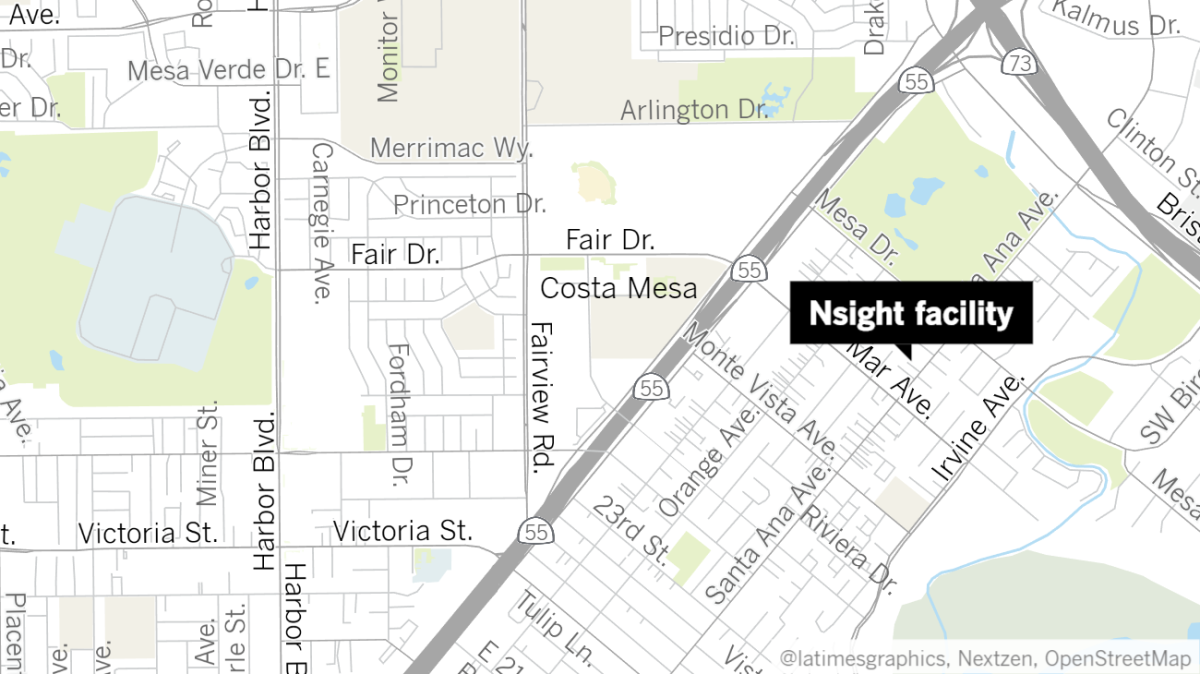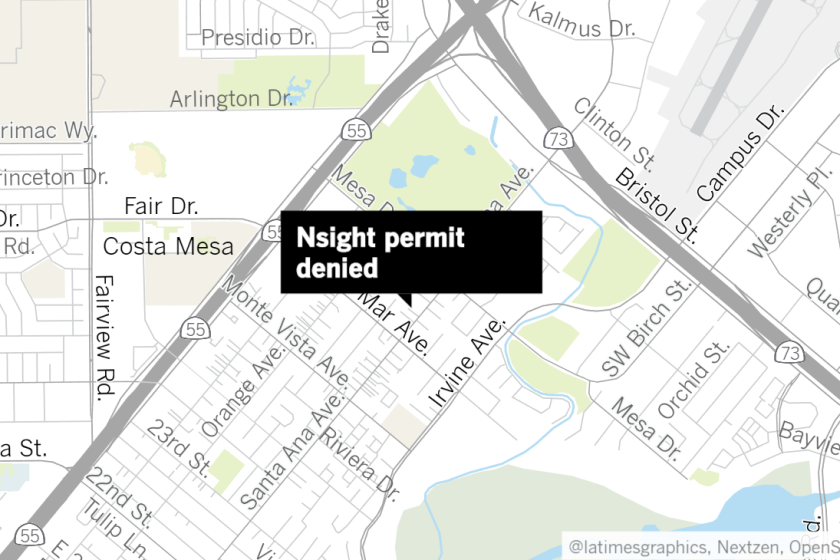Costa Mesa council denies permit for Eastside group home

- Share via
Costa Mesa City Council members Tuesday unanimously rejected an Eastside group home’s push for a permit, citing its proximity to other communal housing facilities.
The council’s vote upheld a Planning Commission decision in August to deny Nsight Psychology & Addiction the conditional use permit it sought to continue providing therapeutic housing for up to 30 patients in a six-unit complex at 2641 Santa Ana Ave.
Nsight Psychology & Addiction has operated out of the six-unit compound at 2641 Santa Ana Ave. for about four years.
Under a city ordinance, group homes in Costa Mesa must obtain permits and be at least 650 feet from one another in residential areas. The Nsight complex is 476 to 636 feet from four state-licensed residential detox facilities on University Drive, according to the city.
A point of contention Tuesday was how Costa Mesa calculates the 650-foot requirement.
Mary Helen Beatificato, Nsight’s chief executive and general counsel, contended the city should consider the route someone would reasonably take from one property to another, rather than just draw a line on a map.
Using city streets, someone would realistically have to travel more than 800 feet to get from Nsight to the other facilities in question, according to Beatificato.
“If you’re concerned with impacts, you don’t follow the path of a bird, you follow the path that people take to get between locations,” she said.
Council members, however, said they’ve always used the direct distance between properties when applying the separation requirement.
“We have maintained the same definition of 650 feet for the entirety of the time we’ve been up here,” Councilwoman Andrea Marr said. “So there’s no justification for considering that definition differently.”
Mayor Katrina Foley agreed, saying, “We do not do the analysis as the applicant has requested, and we never have, and so we are applying the same standard across the board to everyone.”
Councilwoman Sandy Genis said the application was “first and foremost” a land-use matter.
“Is it an appropriate land use at this location under our ordinances? Under our ordinances, the answer is clearly no,” she said. “It doesn’t meet the separation requirement.”
Nsight has operated its facility on the site for more than four years. The property initially functioned as a sober-living home housing recovering addicts, but it switched a few years ago to offering therapeutic housing for people with mental illnesses, according to the operator.
Regardless of how many sober-living homes or addiction-treatment facilities are in Costa Mesa, “there’s absolutely no evidence that there is adequate supply of housing for the mentally disabled,”Beatificato said.
Mayor Pro Tem John Stephens, however, said he felt the specifics of Nsight’s operation had not been clearly outlined during the review process.
“I couldn’t tell you what ... based on the information I have and the presentation tonight, what exactly the nature of the illnesses are that the residents have and what type of treatment they’re receiving,” he said.
Nsight’s website says it uses licensed therapists to treat issues such as depression, anxiety, trauma and post-traumatic stress, bipolar and eating disorders.
In a statement Wednesday morning, Beatificato said Tuesday’s hearing “was a perfect example of how impossible it is to reason someone out of a decision/conclusion that they didn’t use reason to arrive at in the first place.”
She specifically criticized the amount of time she was granted to make her case — about 22 minutes — and said the council seemed disinterested in “hearing about the details of applicant’s housing and its importance in the mental health community.”
“With mass shootings almost a common occurrence in our country, perhaps the real problem is that people in power aren’t willing to do what’s truly needed — provide better access to treatment for the mentally ill along the entire continuum of care, which includes transitional living,” she said.
During the meeting, Foley said 22 minutes “is well beyond what normally is provided” and that Beatificato had been “very repetitive.”
All the latest on Orange County from Orange County.
Get our free TimesOC newsletter.
You may occasionally receive promotional content from the Daily Pilot.










